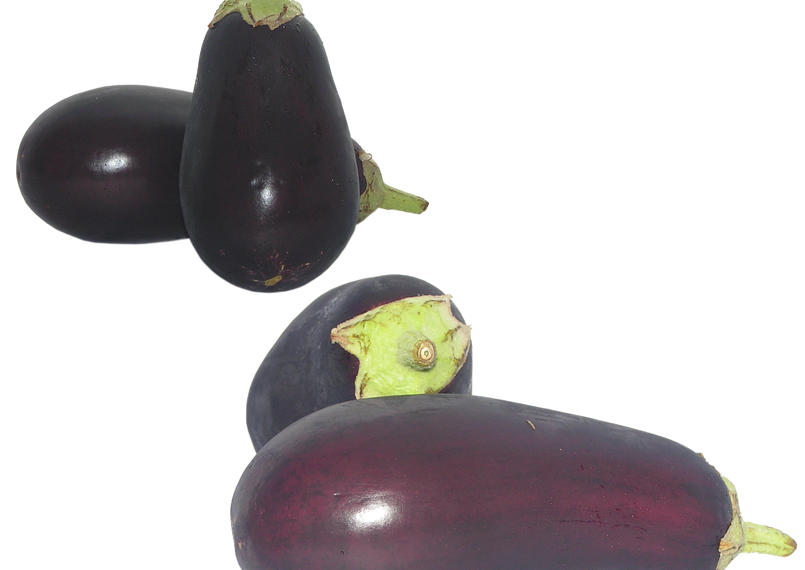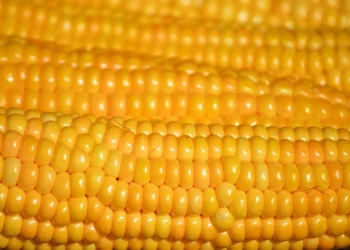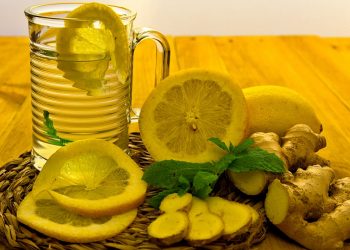Did you know that what you eat can significantly influence your eye health? It’s true! The age-old saying “you are what you eat” rings especially true when it comes to our vision. As someone who loves to cook and experiment with new recipes, I’ve often wondered: can a delicious meal also be a vision booster? Spoiler alert: the answer is a resounding yes! Let’s dive into ten mouth-watering foods that can help keep your peepers in tip-top shape.
Contents
1. Carrots
Let’s start with the classic: carrots. We all grew up hearing that carrots are great for our eyes, and there’s some science to back that up. Carrots are rich in beta-carotene, which our bodies convert into vitamin A. Vitamin A is crucial for maintaining good vision, especially in low-light conditions.
How to Enjoy Them:
- Roasted Carrots: Toss them in olive oil, salt, and pepper and roast until caramelized.
- Carrot Juice: Blend with some ginger and apples for a refreshing drink.
Pros:
- Versatile and easy to incorporate into meals.
- Naturally sweet, making them a hit with kids.
Cons:
- Eating too many can lead to a condition called carotenemia, where your skin may turn slightly orange. But hey, that’s a small price to pay for better vision!
2. Leafy Greens
Spinach, kale, and collard greens are not just trendy salad ingredients; they’re powerhouses for eye health. These greens are loaded with lutein and zeaxanthin, antioxidants that help filter harmful blue light and protect your retina.
How to Enjoy Them:
- Smoothies: Toss a handful into your morning smoothie for a nutrient boost.
- Sautéed Spinach: Cook with garlic and olive oil for a delicious side dish.
Pros:
- Nutrient-dense and low in calories.
- Extremely versatile in various dishes.
Cons:
- Some people find raw leafy greens hard to digest. Cooking them can help.
3. Fatty Fish
If you’re a seafood lover, you’re in luck! Fatty fish like salmon, mackerel, and sardines are rich in omega-3 fatty acids. These healthy fats are essential for maintaining the health of your retina and may even help prevent dry eyes.
How to Enjoy Them:
- Grilled Salmon: Season with herbs and lemon for a quick, healthy dinner.
- Sardine Toast: Mash sardines on whole-grain bread with avocado for a trendy snack.
Pros:
- Packed with protein and healthy fats.
- Great for heart health too!
Cons:
- Some fish may contain high levels of mercury, so choose wisely.
4. Eggs
Eggs are a fantastic source of lutein and zeaxanthin, along with vitamin A. Plus, they’re incredibly versatile. Whether you enjoy them scrambled, poached, or in a frittata, they’re an easy addition to any meal.
How to Enjoy Them:
- Breakfast Burrito: Fill a whole-grain tortilla with scrambled eggs, veggies, and some cheese.
- Deviled Eggs: A delicious snack that can be made ahead of time.
Pros:
- Economical and easy to prepare.
- High in protein, keeping you full longer.
Cons:
- Some people may be concerned about cholesterol levels, but moderate consumption is generally safe for most.
5. Nuts and Seeds
Almonds, walnuts, and chia seeds are not just great snacks; they’re also rich in vitamin E, which helps protect your eyes from oxidative stress. A handful of nuts can give your eyes a significant boost.
How to Enjoy Them:
- Trail Mix: Combine nuts with dried fruit for a tasty snack.
- Chia Pudding: Mix chia seeds with almond milk and let sit overnight for a breakfast treat.
Pros:
- Portable and easy to snack on.
- Great for heart health and skin as well.
Cons:
- High in calories, so moderation is key.
6. Sweet Potatoes
Sweet potatoes are another excellent source of beta-carotene. Not only are they delicious, but they also provide fiber and vitamins that are beneficial for overall health.
How to Enjoy Them:
- Mashed Sweet Potatoes: Creamy and comforting, perfect as a side dish.
- Sweet Potato Fries: Bake them for a healthier alternative to regular fries.
Pros:
- Naturally sweet and satisfying.
- Versatile for both savory and sweet dishes.
Cons:
- Some people may find them too sweet for savory dishes.
7. Berries
Blueberries, strawberries, and blackberries are not just delicious; they’re also packed with antioxidants that may help reduce the risk of cataracts and macular degeneration. Plus, they’re a great way to satisfy your sweet tooth!
How to Enjoy Them:
- Smoothie Bowls: Blend with yogurt and top with granola for a nutritious breakfast.
- Berry Salad: Toss with spinach, feta, and a light vinaigrette for a refreshing salad.
Pros:
- Low in calories and high in fiber.
- Easy to add to various dishes.
Cons:
- Fresh berries can be pricey, especially out of season.
8. Oranges
Oranges and other citrus fruits are packed with vitamin C, which is vital for eye health. Vitamin C helps reduce the risk of cataracts and age-related macular degeneration.
How to Enjoy Them:
- Fresh Juice: Squeeze fresh oranges for a refreshing drink.
- Citrus Salad: Combine with greens, nuts, and a light vinaigrette for a vibrant salad.
Pros:
- Hydrating and refreshing.
- Great for the immune system too.
Cons:
- High in sugar, so enjoy in moderation.
9. Bell Peppers
Did you know that bell peppers, especially the red and yellow varieties, are loaded with vitamin C and beta-carotene? They’re not just colorful additions to your plate; they’re eye health champions!
How to Enjoy Them:
- Stuffed Peppers: Fill them with quinoa, black beans, and spices for a hearty meal.
- Raw with Hummus: A crunchy, healthy snack option.
Pros:
- Low in calories and high in vitamins.
- Adds color and flavor to any dish.
Cons:
- Some people may find them hard to digest, especially raw.
10. Whole Grains
Whole grains like oats, quinoa, and brown rice provide essential nutrients like vitamin E, zinc, and niacin. These nutrients play a role in maintaining eye health and may help reduce the risk of age-related issues.
How to Enjoy Them:
- Breakfast Oatmeal: Top with fruits, nuts, and a drizzle of honey.
- Quinoa Salad: Mix with veggies and a lemon vinaigrette for a refreshing dish.
Pros:
- Filling and nutritious.
- Great for digestive health.
Cons:
- Some people may find whole grains hard to digest compared to refined grains.
FAQs
Q1: Can I improve my vision by changing my diet?
Absolutely! While diet alone won’t correct vision problems, incorporating eye-healthy foods can help reduce the risk of age-related eye issues.
Q2: How much of these foods should I eat?
Aim for a balanced diet that includes a variety of these foods. A handful of nuts, a serving of fish a couple of times a week, and plenty of fruits and veggies are great starting points.
Q3: Are there any foods I should avoid for eye health?
Foods high in sugar and unhealthy fats, like processed snacks and sugary drinks, can be detrimental to overall health, including eye health. Moderation is key.
Q4: Should I take supplements instead?
While supplements can help, it’s best to get nutrients from whole foods whenever possible. They offer a complex combination of vitamins and minerals that work synergistically.
Conclusion
Eating for eye health doesn’t have to be bland or boring. The foods listed above are not only delicious but also packed with nutrients that can help keep your vision sharp. So next time you’re at the grocery store, consider filling your cart with these eye-friendly options.
Remember, research is ongoing, and while results are promising, it’s essential to maintain a balanced diet and consult with a healthcare provider for personalized advice. Here’s to tasty meals and healthy eyes!
This article is for educational purposes only and is not a substitute for professional medical advice. Always consult a qualified healthcare provider before making changes to your health routine.
References
-
Chiu, C. J., & Taylor, A. (2015). Nutritional influences on age-related macular degeneration. Journal of Nutrition, Health & Aging, 19(8), 847-851. https://doi.org/10.1007/s12603-015-0601-1
-
Mozaffari-Khosravi, H., & Mozaffari-Khosravi, A. (2019). The role of dietary antioxidants in the prevention of age-related macular degeneration. Clinical Interventions in Aging, 14, 1707-1716. https://doi.org/10.2147/CIA.S204233
-
Mayo Clinic. (2022). Eye health: 5 tips for better vision. Retrieved from https://www.mayoclinic.org/healthy-lifestyle/adult-health/in-depth/eye-health/art-20045891
Get Your FREE Natural Health Guide!
Subscribe now and receive our exclusive ebook packed with natural health tips, practical wellness advice, and easy lifestyle changes — delivered straight to your inbox.














